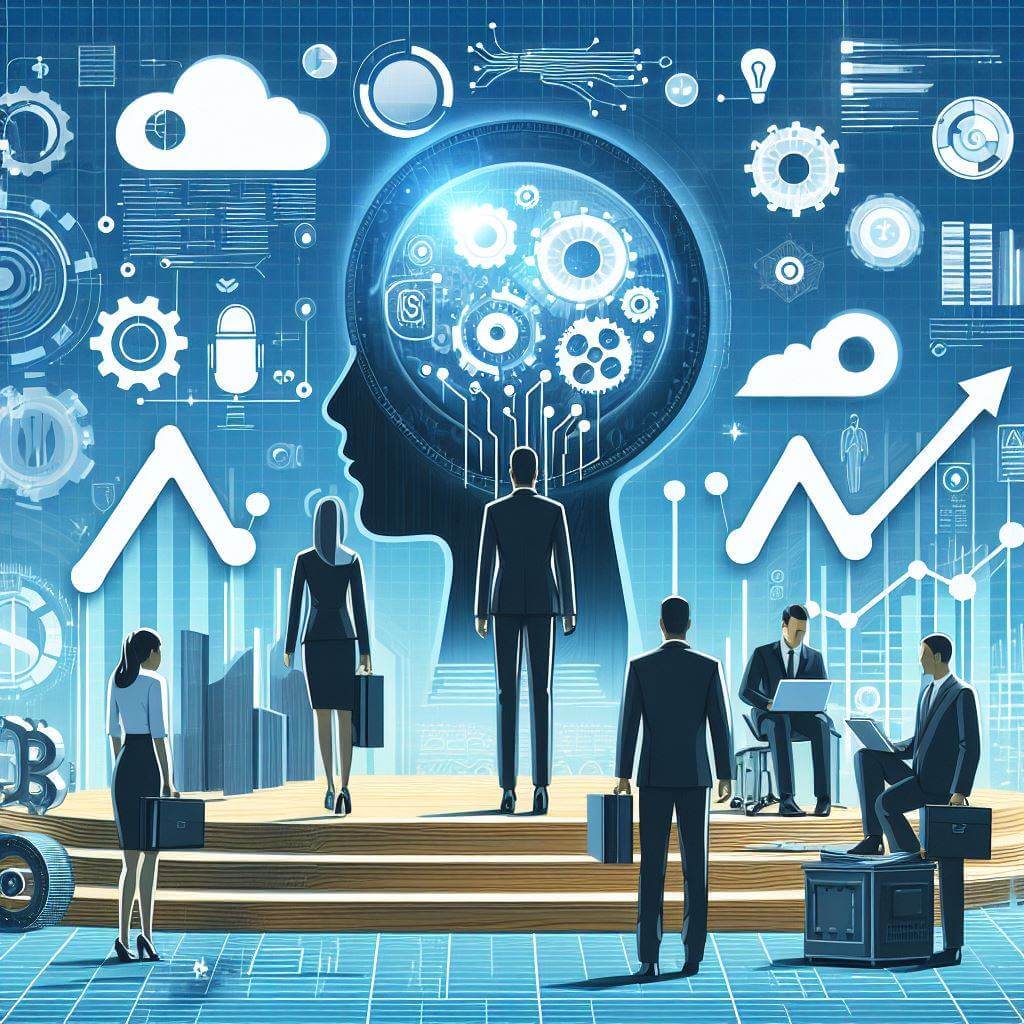In the ever-evolving landscape of digital marketing, businesses are constantly seeking innovative ways to connect with their target audience. With the advent of Artificial Intelligence (AI), personalized marketing has emerged as a game-changer, allowing brands to tailor their messages to individual preferences and behaviors. In this blog post, we’ll explore the intersection of AI and personalized marketing strategies, unraveling the potential benefits for businesses and consumers alike.
Understanding Personalized Marketing
Personalized marketing involves tailoring promotional content, product recommendations, and overall brand experiences to individual consumer preferences. Traditional marketing strategies often rely on broad demographics, making it challenging to resonate with every potential customer. However, AI has paved the way for a more granular and nuanced approach to marketing.
AI in Personalized Marketing
- Data-driven Insights: The cornerstone of personalized marketing with AI lies in data analytics. AI algorithms can process vast amounts of consumer data, extracting valuable insights into their preferences, behaviors, and purchasing patterns. This enables marketers to create highly targeted campaigns that resonate with specific segments of their audience.
- Predictive Analytics: AI-powered predictive analytics takes personalized marketing to the next level by forecasting future behaviors based on historical data. By understanding what consumers are likely to do next, businesses can proactively tailor their marketing strategies to meet evolving needs. This not only enhances customer satisfaction but also increases the effectiveness of marketing efforts.
- Chatbots and Virtual Assistants: Integrating AI-driven chatbots and virtual assistants into websites and messaging platforms enables real-time interaction with users. These tools can provide personalized recommendations, answer queries, and guide customers through the purchasing process. The conversational nature of these AI interfaces enhances the overall customer experience, fostering a sense of individual attention.
- Recommendation Engines: E-commerce platforms, streaming services, and other digital platforms leverage recommendation engines powered by AI. These engines analyze user behavior, preferences, and historical data to suggest products, services, or content tailored to individual tastes. This not only increases the likelihood of a purchase but also keeps users engaged and satisfied.
Benefits of AI in Personalized Marketing
- Enhanced Customer Engagement: Personalized marketing establishes a deeper connection with consumers by delivering content that aligns with their interests and preferences. This heightened engagement fosters brand loyalty, as customers feel understood and valued.
- Improved Conversion Rates: Targeted marketing campaigns driven by AI insights are more likely to convert leads into customers. By presenting relevant products or services at the right time, businesses can capitalize on consumer intent and drive conversions effectively.
- Cost-effectiveness: While personalized marketing may seem resource-intensive, the efficiency gained through AI-driven automation often results in cost savings. By targeting specific audience segments with precision, businesses can allocate their marketing budget more effectively and achieve a higher return on investment.
- Customer Retention: AI not only helps acquire new customers but also plays a crucial role in retaining existing ones. By continuously analyzing customer data, businesses can anticipate changing preferences and offer personalized incentives, promotions, or loyalty programs, thereby reducing churn rates.
- Competitive Advantage: As AI becomes more integral to marketing strategies, businesses that embrace personalized marketing gain a competitive edge. The ability to adapt quickly to changing consumer preferences and behavior sets these companies apart in the crowded digital marketplace.
Challenges and Considerations
While the benefits of AI in personalized marketing are evident, businesses must navigate potential challenges and ethical considerations associated with the use of consumer data and AI algorithms. Striking the right balance between personalization and privacy is crucial to building trust with customers.
- Privacy Concerns: Consumers are becoming increasingly aware of the data they share and the potential for misuse. Businesses must prioritize transparent communication about data collection practices and ensure compliance with privacy regulations to maintain consumer trust.
- Algorithmic Bias: AI algorithms are only as good as the data they are trained on. If historical data contains biases, the algorithms may perpetuate and exacerbate these biases. It is essential for businesses to regularly audit and refine their algorithms to minimize any unintentional discrimination.
- Over-reliance on Automation: While automation is a powerful tool, it should not replace the human touch in marketing. Striking a balance between AI-driven personalization and genuine human interaction is vital to creating a well-rounded customer experience.
Conclusion
In conclusion, the marriage of AI and personalized marketing represents a significant leap forward in the world of digital advertising. The ability to harness data-driven insights, predictive analytics, and AI-driven tools empowers businesses to create more meaningful connections with their target audience. As technology continues to advance, the landscape of personalized marketing will evolve, presenting new opportunities and challenges for businesses willing to embrace innovation.
By adopting AI in their marketing strategies, businesses not only stay ahead of the curve but also contribute to a more personalized and relevant online experience for consumers. As we navigate the dynamic landscape of digital marketing, the synergy between AI and personalized strategies is poised to redefine how brands connect with their audience in the years to come. Embracing this revolution can position businesses as industry leaders and pioneers in the era of personalized marketing.
Also Read: How to Visualize Data Distributions in Python with 7 Astonishing Technique
